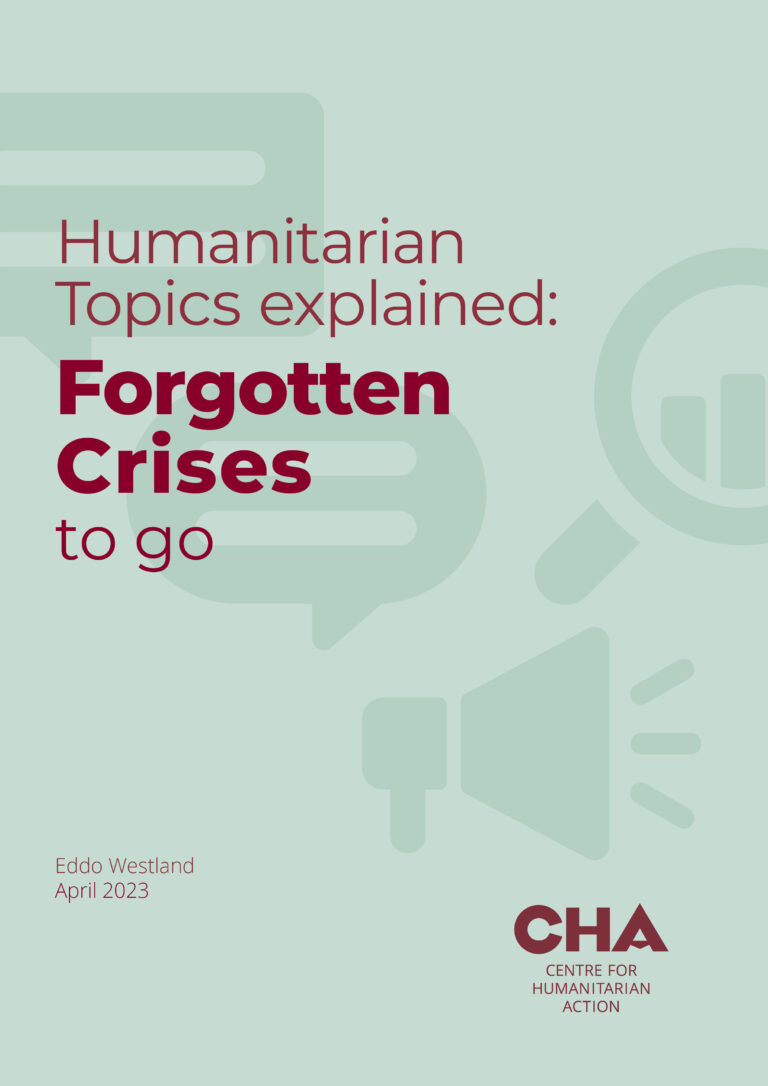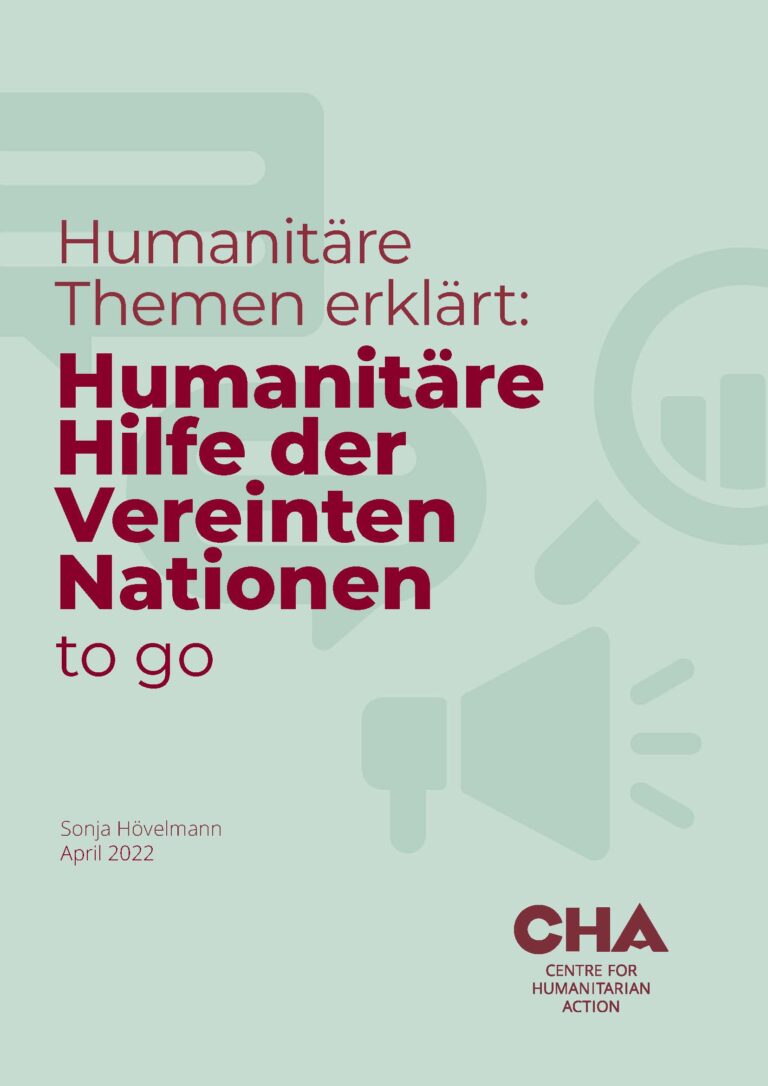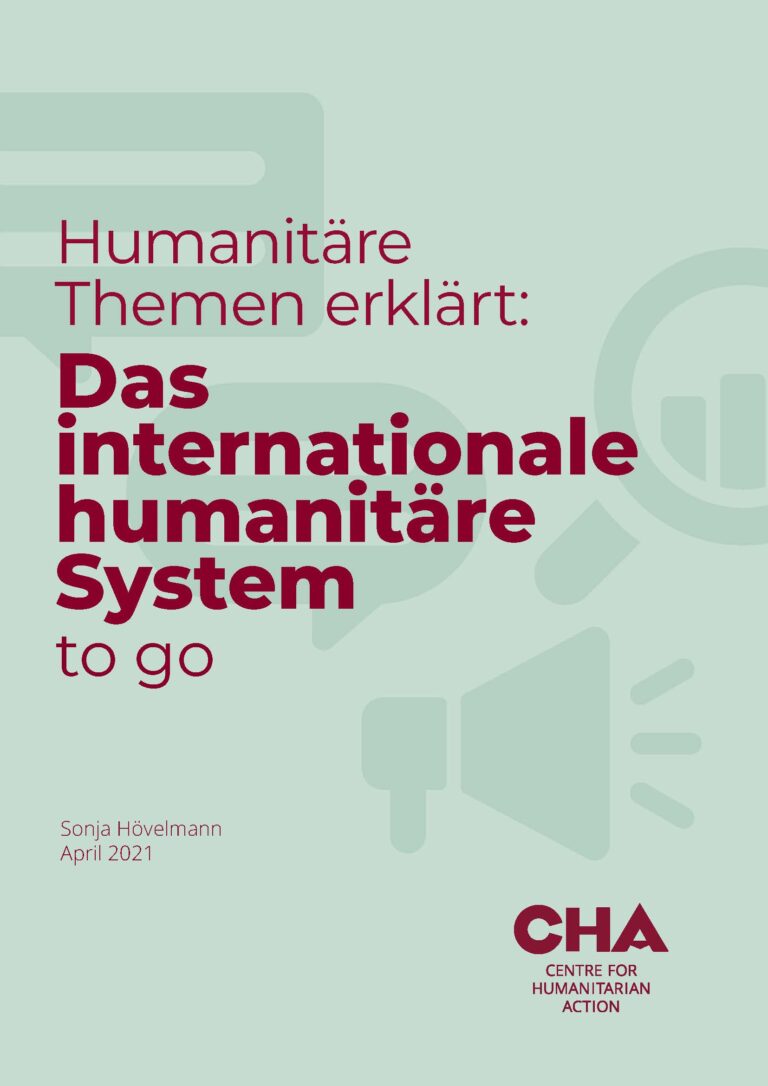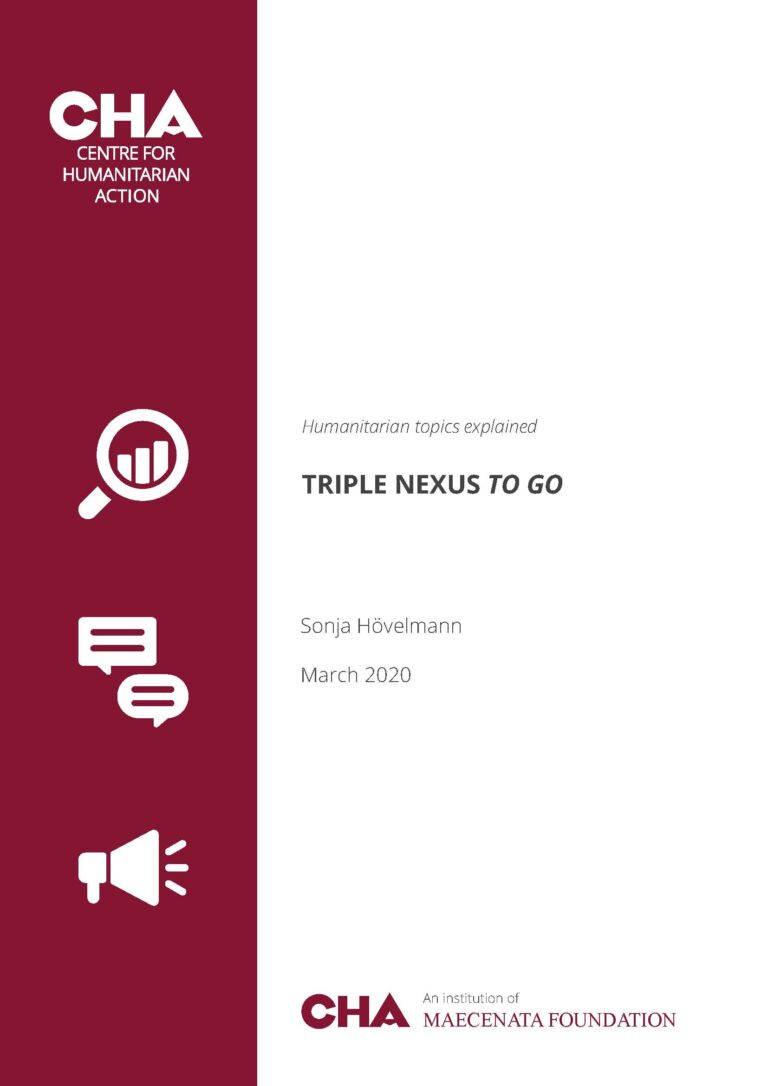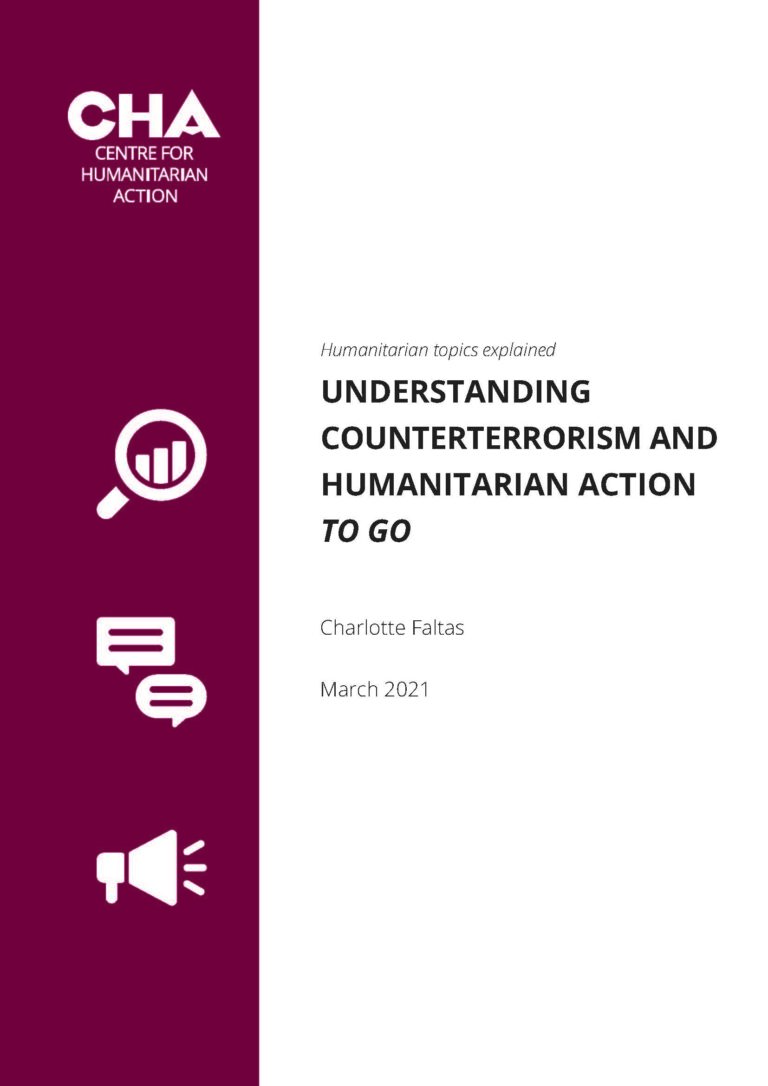In 1859, the Swiss Henry Dunant spontaneously organised aid for wounded soldiers at the Battle of Solferino. He was the first to call for a clear separation between politics and aid for the wounded. In doing so, he laid the foundations for the humanitarian principles that still apply today: Humanity, impartiality, independence and neutrality. Humanitarianism as an institutionalised form of international aid and solidarity was given its first organisational framework with the founding of the International Committee of the Red Cross. Since then, the humanitarian aid system has grown strongly and become increasingly institutionalised and professionalised.
But the number of people in need around the world is increasing every year, partly due to climate change. And the gap between response needs and funding is becoming ever wider. Humanitarian action must become even more effective and far-sighted.
Numerous projects and initiatives have been launched to reform the humanitarian system and drive innovation, most recently the so-called Grand Bargain process. At the same time, however, humanitarian action is increasingly being questioned and attacked.
On this page we present publications, videos and more for those looking for a first introduction to the topic. To start with you can listen to an introductory podcast. You can then delve deeper into individual areas of research at CHA via the menu item “topics”.
Publications to go
In our publication series “To Go” we explain briefly and comprehensibly important aspects of humanitarian action, for example how the system works as a whole, the special role of the United Nations or the concept of the Triple Nexus, and provide recommendations for further reading on the topic.
Digitalisation in humanitarian action - to go
15.07.2024Today, humanitarian action is increasingly digital, marked by the widespread adoption of digital technologies.. In this to go - paper, Andrea Düchting explains several aspects, from new actors and ways of working to the particular challenges of digital transformation in the humanitarian sector and future prospects.
Forgotten Crises - to go
05.05.2023In the current #Into Focus campaign, attention is being drawn to so-called "forgotten crises". But where does the term come from? What are the definitions and criteria? This to go -Paper introduces the topic.
Humanitarian action of the United Nations - to go
06.05.2022Humanitarian assistance is a core task of the United Nations. In this To Go paper, Sonja Hövelmann explains UN actors, their tasks, funding and challenges. [German]
Introduction to the international humanitarian system
26.05.2021Humanitarian aid - what is it and how does it work? Sonja Hövelmann explains this in her latest paper from the CHA publication series 'to go'. For all those who want to brush up on the basics - or who have always wanted to explain to friends and family what they do in their daily work. [German]
Triple Nexus - to go
30.03.2020In CHA's new publication series "... to go", complex topics of humanitarian assistance are explained briefly and easily understandable. In this first issue, the much-discussed and at the same time often vague, undefined Triple Nexus is to be unravelled.
Understanding counterterrorism and humanitarian action - to go
14.04.2021Since 9/11, sanctions and so-called counter-terrorism measures have increased. This also makes the work of humanitarian aid workers more difficult. Former CHA intern Charlotte Faltas explains what counter-terrorism measures are all about and how they collide with humanitarian action in a new paper in the publication series "Humanitarian topics explained ... to go".
Videos
Some things are easier to grasp visually: The ideas for these videos originated in the seminar “Theory and Practice of Humanitarian Action” at the University of Tübingen, which Sonja Hövelmann led together with Martin Quack in the winter semester 2020/2021, and were developed by Frederic Auel, Isabel Josam, Theresa Ogando and Anastasia Rentzing. The explanatory videos created in the seminar were then graphically prepared, edited and finalised by Isabel Josam as part of a CHA internship during her studies. Unfortunately only in German for now – but we are working on it!
Our offers for universities
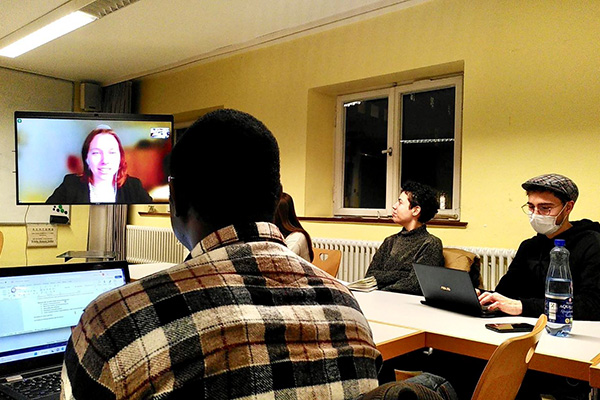 |
CHA researchers are invited to universities on a regular basis and explain principles, policies and trends in global and German humanitarian action. Would you like to enrich your seminar with external input? CHA research fellows are ready to give input or participate in discussions as part of seminars or lectures. Write to info@chaberlin.org if this is of interest for your class. |
Humanitarian Takeaways
Too many browser tabs open, too little time for deep reading? We have a solution!
Humanitarian Takeaways is a collection of selected and summarised materials on a specific humanitarian topic, published by CHA and ICVA, e.g. German humanitarian policy and strategy, digitalisation of humanitarian action, localisation, climate change & humanitarian action, antiracism and decolonisation, the Humanitarian-Development-Peace Nexus, and gender equality in humanitarian action. Sign up, and approx. every three months Takeaways will land in your inbox!
- March 2025 - Aid Worker's Wellbeing
- Dezember 2024 - Principles, politics, and politicisation of aid
- September 2024 - The future of INGOs
- May 2024 - Climate and Humanitarianism
- February 2024 - Gaza
- August 2023 - Triple Nexus
- February 2023 - German foreign and humanitarian policy
- November 2022 - Digital Transformation
- September 2022 - Climate Crisis
- August 2022 - Anti-Racism in Aid Organisations
- June 2022 - Localisation
- April 2022 - Gender
Useful links
- Humanitarian news and updates: The New Humanitarian
- Concepts, abbreviations, databases: Humanitarian Encyclopedia
- Resource library on countries and topics: ALNAP Help Library



